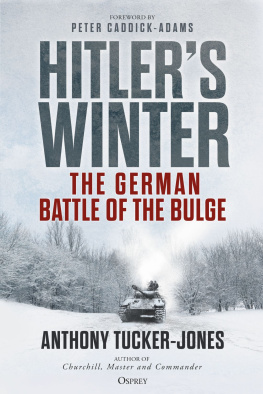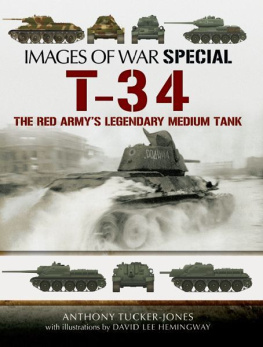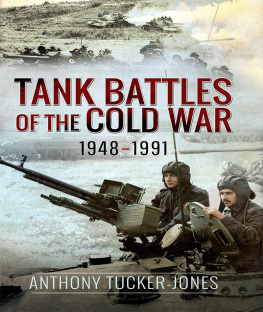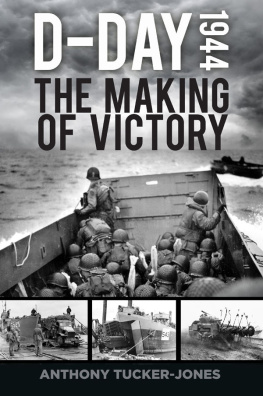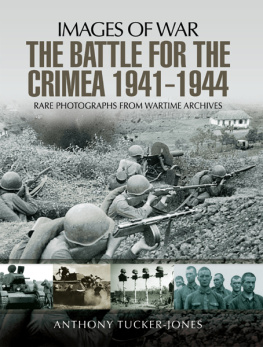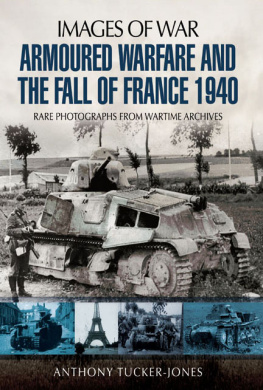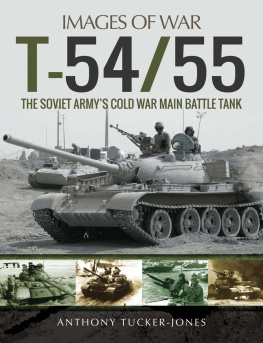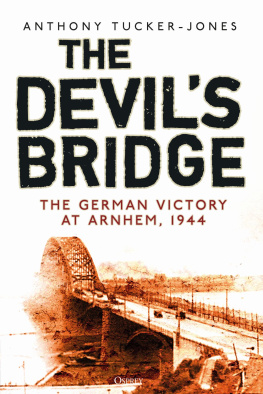Anthony Tucker-Jones - The Battle for the Caucasus
Here you can read online Anthony Tucker-Jones - The Battle for the Caucasus full text of the book (entire story) in english for free. Download pdf and epub, get meaning, cover and reviews about this ebook. genre: Non-fiction. Description of the work, (preface) as well as reviews are available. Best literature library LitArk.com created for fans of good reading and offers a wide selection of genres:
Romance novel
Science fiction
Adventure
Detective
Science
History
Home and family
Prose
Art
Politics
Computer
Non-fiction
Religion
Business
Children
Humor
Choose a favorite category and find really read worthwhile books. Enjoy immersion in the world of imagination, feel the emotions of the characters or learn something new for yourself, make an fascinating discovery.

- Book:The Battle for the Caucasus
- Author:
- Genre:
- Rating:5 / 5
- Favourites:Add to favourites
- Your mark:
- 100
- 1
- 2
- 3
- 4
- 5
The Battle for the Caucasus: summary, description and annotation
We offer to read an annotation, description, summary or preface (depends on what the author of the book "The Battle for the Caucasus" wrote himself). If you haven't found the necessary information about the book — write in the comments, we will try to find it.
Anthony Tucker-Jones: author's other books
Who wrote The Battle for the Caucasus? Find out the surname, the name of the author of the book and a list of all author's works by series.
The Battle for the Caucasus — read online for free the complete book (whole text) full work
Below is the text of the book, divided by pages. System saving the place of the last page read, allows you to conveniently read the book "The Battle for the Caucasus" online for free, without having to search again every time where you left off. Put a bookmark, and you can go to the page where you finished reading at any time.
Font size:
Interval:
Bookmark:

IMAGES OF WAR
THE BATTLE FOR THE CAUCASUS 19421943

Hitlers mountain troops scaled the Caucasus Mountains in 1942 and hoisted the Nazi swastika on Mount Elbrus.
IMAGES OF WAR
THE BATTLE FOR THE CAUCASUS 19421943
RARE PHOTOGRAPHS FROM WARTIME ARCHIVES
Anthony Tucker-Jones

First published in Great Britain in 2018 by
PEN & SWORD MILITARY
an imprint of
Pen & Sword Books Ltd,
47 Church Street,
Barnsley,
South Yorkshire
S70 2AS
Copyright Pen and Sword Books Limited, 2018
Every effort has been made to trace the copyright of all the photographs. If there are unintentional omissions, please contact the publisher in writing, who will correct all subsequent editions.
ISBN 978 1 47389 492 1
eISBN 978 1 4738 9494 5
Mobi ISBN 978 1 4738 9493 8
The right of Anthony Tucker-Jones to be identified as Author of this Work has been asserted by him in accordance with the Copyright, Designs and Patents Act 1988.
A CIP record for this book is available from the British Library.
All rights reserved. No part of this book may be reproduced or transmitted in any form or by any means, electronic or mechanical including photocopying, recording or by any information storage and retrieval system, without permission from the Publisher in writing.
Pen & Sword Books Ltd incorporates the imprints of Pen & Sword Archaeology, Atlas, Aviation, Battleground, Discovery, Family History, History, Maritime, Military, Naval, Politics, Railways, Select, Social History, Transport, True Crime, Claymore Press, Frontline Books, Leo Cooper, Praetorian Press, Remember When, Seaforth Publishing and Wharncliffe.
For a complete list of Pen & Sword titles please contact
Pen & Sword Books Limited
47 Church Street, Barnsley, South Yorkshire, S70 2AS, England
E-mail:
Website: www.pen-and-sword.co.uk
This book is intended to provide a visual introduction to Hitlers ambitious Operation Edelweiss, his dramatic if very foolhardy attempt to seize the oilfields of Maikop, Baku and Grozny in the Caucasus in the southern Soviet Union. Seen by many as a wholly unnecessary diversion of resources from Hitlers conquest of the city of Stalingrad, this campaign held the key to Stalins vital oil supplies. It also featured the deployment of Hitlers elite mountain troops.
The battle for the Caucasus is the least known of the campaigns fought on the Eastern Front and yet it is full of high drama. Looking at the map the inevitable question is what possessed Hitler to send an army deep into the Caucasus mountains, sandwiched between the Black Sea to the west and the Caspian Sea to the east. It seemed a fools errand in a distant land.
Hitlers ambitious plans for the Caucasus may look like mission creep after the remarkable destruction of the Red Army in the summer of 1941 and spring of 1942. However, it was actually a material strategic consideration as early as July 1941. He had instructed then:
The enemy forces which are still west of the Dnieper must be decisively defeated and dispersed. As soon as the state of operations and of supplies allows, 1st and 2nd Panzer Groups will be concentrated under command of 4th Panzer Army and, with the support of the infantry and mounted divisions, will occupy the Kharkov industrial area and thrust forward across the Don to Caucasia.
By mid-August 1941 Field Marshal von Brauchitsch, commander-in-chief of the German Army, was at loggerheads with Hitler over what their strategic priorities were on the Eastern Front. Brauchitsch felt Moscow was the goal, but the Fhrer thought otherwise. The most important aim to be achieved before the onset of winter, wrote Hitler, is not to capture Moscow, but to seize the Crimea and the industrial and coal region on the Donets, and to cut off the Russian oil supply from the Caucasus area. In the north, the aim is to cut off Leningrad and join with the Finns.
Hitlers generals were not pleased by these strategic diversions on the flanks, which inevitably weakened the drive on Moscow. If anything was going to unseat Stalin and force the Soviets to sue for peace it would be the humiliating capture of their capital. Hitler as always felt he knew best. His generals were aghast that he wanted to capture Leningrad and wipe it from the map. The Kriegsmarine could not understand why he was not even prepared to preserve the harbour installations and shipyards. Hitler intended the same fate for Moscow, but he failed to capture either city.
In the meantime Hitler sacked Brauchitsch and assumed the role as CinC Army for himself. Hitler also got rid of his turbulent priest of bad news General Halder, who was serving as the Armys Chief of the General Staff. Halder, who saw himself as the voice of reason in warning Hitler about the Red Armys build-up north of the Volga, was replaced by General Zeitzler.
When the spring campaigning season of 1942 opened, Hitler once more was content to stand still before Moscow and concentrate his efforts against the distant Caucasus, Leningrad and Stalingrad. Zeitzler was a first-class staff officer. He had served Kleist on the Eastern Front, then been posted as Chief of Staff in the West where he had helped thwart the Canadian-led raid on Dieppe. Zeitzler was flattered by his latest promotion and was not in a position to oppose Hitlers continued assault on Stalingrad and the move into the Caucasus. When he finally grasped what was happening German reserves could not be extricated because they had been committed too far.
Besides this, German intelligence made a compelling case for going into the Caucasus. Colonel Reinhard Gehlen, who was in charge of intelligence-gathering on the Eastern Front, said:
We knew that the output of manganese ores in the Urals and western Siberia was inadequate for the local steel industry, and that manganese was having to be transported north from Chiatura in the Caucasus; since the Caucasus was the objective of our summer offensive, its capture would have a severe effect on Soviet steel production. Furthermore, the second richest veins of tungsten and molybdenum in Europe (after those in Portugal) were also in the Caucasus... We calculated that the loss of ferrous alloy production at Sestafoni [in Georgia] would reduce high-grade steel production for the arms industry by at least thirty per cent.
In contrast the impact of seizing the regions oil was likely to be much slower. As far as petroleum production was concerned, however, adds Gehlen we did not expect the loss of the Caucasian oilfields to have much effect on Soviet fighting capacity until mid-1943, as there had been extensive stockpiling in Central Russia.
Like all military campaigns the geography of the region played a great part in the battle for the Caucasus. The gateway to the region is either via the mountainous Crimea and across the Kerch Straits, Rostov-on-Don or Stalingrad on the Volga. Taking any of these would have permitted Hitlers forces to wheel south-east into the Caucasus. To the north-east lies the Caspian Depression formed by the mighty Volga delta and the city of Astrakhan. This blocks the route east into Kazakhstan.
The first major physical barriers in the northern Caucasus are the Kuban and Terek rivers. Then from the port of Novorossiysk on the Black Sea the Caucasus mountains stretch south-east to Baku on the Caspian Sea. These formed a protective barrier for the southern Soviet republics of Georgia, Azerbaijan and Armenia. Conquest of the latter would have brought Hitler to the very borders of Turkey and Iran.
Font size:
Interval:
Bookmark:
Similar books «The Battle for the Caucasus»
Look at similar books to The Battle for the Caucasus. We have selected literature similar in name and meaning in the hope of providing readers with more options to find new, interesting, not yet read works.
Discussion, reviews of the book The Battle for the Caucasus and just readers' own opinions. Leave your comments, write what you think about the work, its meaning or the main characters. Specify what exactly you liked and what you didn't like, and why you think so.

